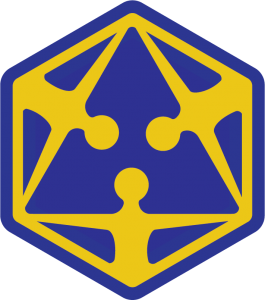We have a great team of Physical Therapists here on staff at Tensegrity. They each bring something unique to our team and are a huge part of what makes Tensegrity, Tensegrity. We would like to introduce you to our very own, Alex Childs (DPT).
When did you first decide to become a PT and why?
“I tore my ACL in high school, and Sean Roach was my PT here at Tensegrity. I came in and thought that everything here was cool and fascinating. Sean actually helped push me in the direction to become a physical therapist, and I started taking some classes in undergrad. My teacher was actually someone who used to work for him, and they also pushed me to look further into becoming a PT. I came into shadow Sean a little more and that was when I decided that physical therapy was what I wanted to do.”
Where did you go to school?
“I am a local here in Eugene. I went from Church Hill High School and from there I went to Northwest Christian University, and then I went to grad school in Phoenix Arizona at A.T. Still University.”
How long have you been a PT and how long have you been at Tensegrity?
“I started shadowing physical therapists at Tensegrity back in 2011, and then off and on some more for three more years. During this time, I was able to shadow and help teach the strength and conditioning class. I was able to do my first rotation here in 2017, and then I did my last rotation at the start of 2019, and I have officially been a full-time PT since June of 2019.”
What do you think makes Tensegrity stand apart from other clinics?
“I think that makes it stand apart is the outcomes we expect. Our mission is to get the patient’s back to what they want to do without feeling like they have to sacrifice or give things up.”
What do you like most about being a PT?
“I like getting to really know my patients. You end up spending a lot of time with people over an extended period, so you really get to know them very well, and everyone has cool stories and comes from different backgrounds.
Also, I like that every single patient that comes in is sort of like a puzzle. I am interested in figuring out where I think someone’s symptoms are, relative to what is actually causing symptoms, and a lot of times those can be finely related, but sometimes they can be ways apart, so it is deciphering what is what and what is going to give them the greatest return. So it is like a puzzle for each person because everyone is so different.”
What is a typical day like for you?
“Everyone is given a 45-minute slot. Generally, I bring each person back and ask how they are feeling, how things have changed, and then I also like to get their idea of what they think they need and what they want. Then I can mesh their preferences with what I know to be the most beneficial for them. At the end of the session, I like to leave 5 or 10 minutes to make sure that we answer any of their questions or touch upon anything else they wanted to discuss. If they have a program, I make sure that it is written up in a way that makes sense to them, and then make sure to get that out to them.”
What is one of the biggest lessons you have learned since working at Tensegrity?
“You are never done learning. There is always more to learn, even if it is from someone you wouldn’t necessarily expect to learn from. It could even be something that you think you have mastered, there is always another angle to learn. Whether that is the way that you relay the information or the direction you look at it, or for that same concept for a different patient. So really, it is about trying to keep your eyes open and see and learn something new every day.”
